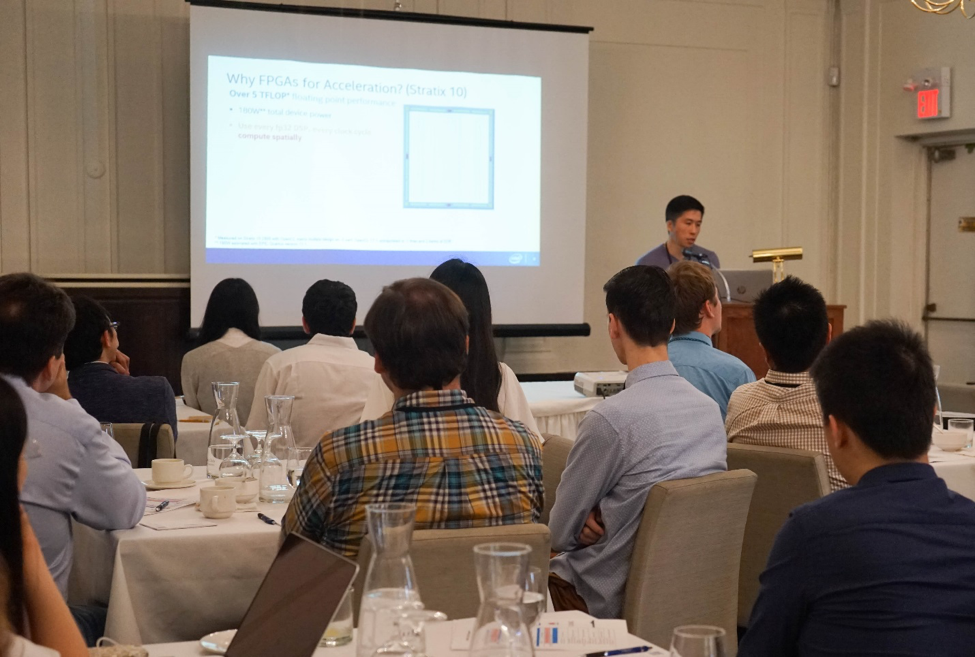
June 27, 2018
Laura Brown
Professors, students and industry experts gathered at the University of Toronto for the International Symposium on Highly Efficient Accelerators and Reconfigurable Technologies (HEART), held June 20 – 22, 2018 at the Faculty Club. The 9th HEART Conference was brought to Canada for the first time by this year’s General Chair, Professor Jason Anderson of The Edward S. Rogers Sr. Department of Electrical & Computer Engineering (ECE).
“It’s a great opportunity to host HEART 2018 at the University of Toronto,” said Professor Anderson (ECE), “Especially since we have so many researchers here working on computer acceleration — particularly using FPGAs.” Field-Programmable Gate Arrays (FPGAs) are reprogrammable computer chips that can be configured by end users.
The HEART conference is an international forum on research in high-performance and power-efficient computing using reconfigurable architectures and compute acceleration technologies, such as FPGAs and General Purpose Graphic Processing Units (GPGPUs). Researchers use these technologies to tailor computing to an application, creating efficiencies in speed and power.
Historically, increases in computational throughput were achieved through increased speed of computer chips, which in turn arose from the continuing miniaturization of integrated circuit technology. Many chip features, like transistors were reduced in size, allowing for more of them to be placed on a chip and allowing faster chip operation. However, with increased chip speed came increased power dissipation, which eventually became the limiting factor, and the trend of chip speed increases was slowed down.
“Around the middle of the 2000s, regular computers stopped getting faster,” said Professor Anderson. “So, we’re in this era where, if you want to get better speed and energy efficiency, you need to customize your computing. That’s why there’s more interest in reconfigurable technologies like FPGAs.”
That interest is what prompted the inception of the conference in 2010. The HEART conference started as a workshop connected to the International Conference on Supercomputing. At that time, reconfigurable computer accelerator technologies were becoming a major stream in the area of high-performance computing. As the stream grew, so did the HEART workshop, becoming an independent conference a few years later.
The stream continues to grow, and so does the conference. HEART 2018 included five invited keynote talks, and peer-reviewed oral and poster paper presentation sessions. Each talk and keynote described one of many diverse applications of compute acceleration. Professor Keith Vanderlinde from the Dunlap Institute, for example, described using compute acceleration to process the vast quantities of cosmological data received from the Canadian Hydrogen Intensity Mapping Experiment (CHIME) radio telescope in Penticton, BC.
HEART 2018 provides an opportunity for researchers to share unique cases like Professor Vanderlinde’s work, as well as state-of-the-art results under the theme of computing acceleration. Professor Anderson describes the conference as an opportunity for people working in the field to learn, connect and share ideas.
“There’s a lot of innovation happening in computing acceleration and these innovations make things in computing — and conferences like HEART — very exciting.”
More information:
Jessica MacInnis
Senior Communications Officer
The Edward S. Rogers Sr. Department of Electrical & Computer Engineering
416-978-7997; jessica.macinnis@utoronto.ca